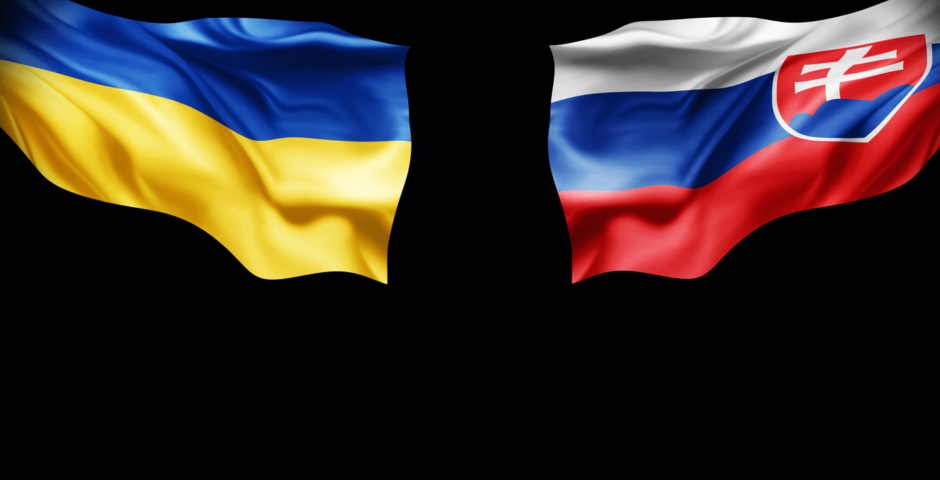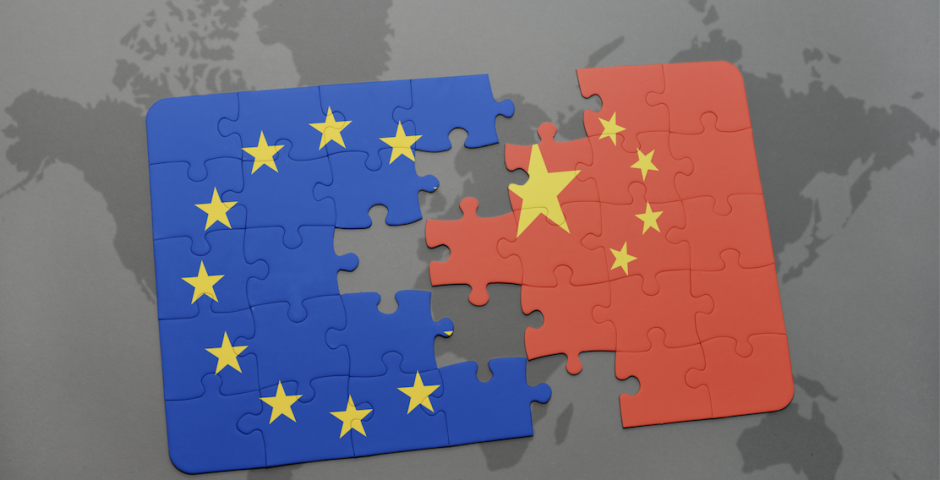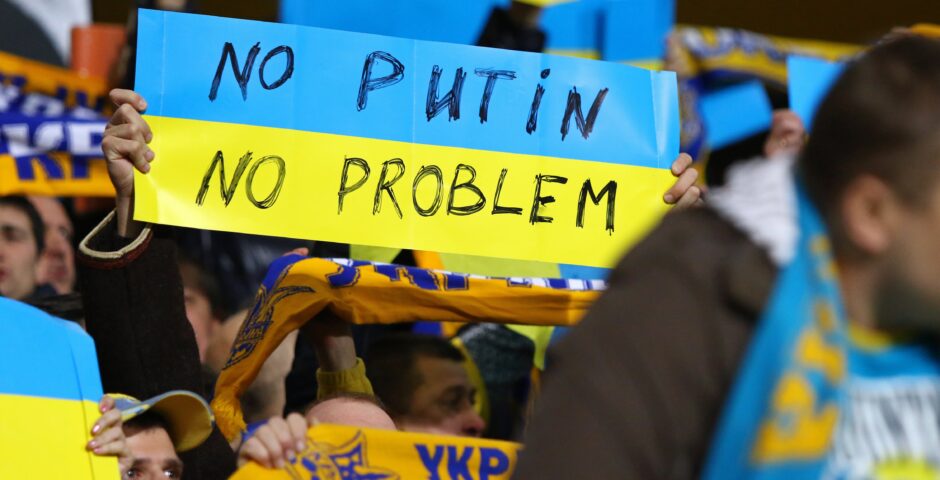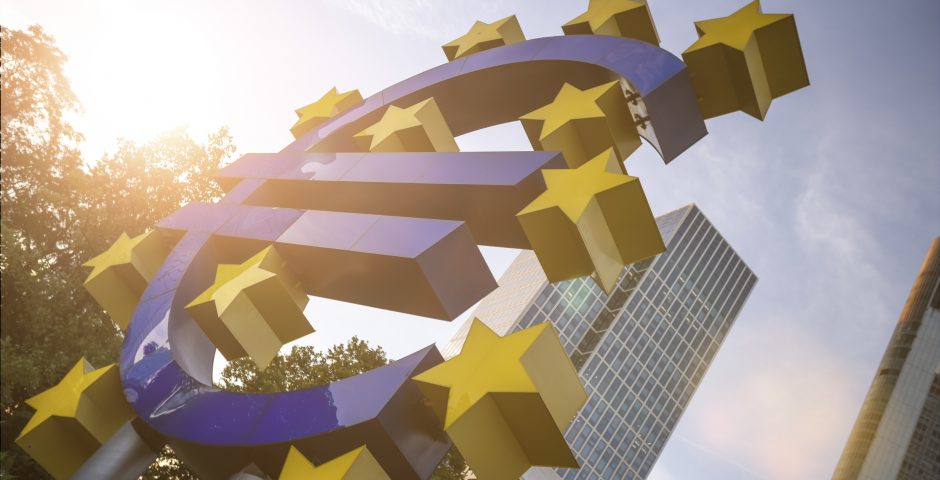Shifting opinions: future Slovak support for Ukraine

The potential impact of the Slovak elections on support for Ukraine.
Following the September 2023 Slovak parliamentary elections, the European Union (EU) and Ukraine may have something to worry about. The recent Slovak parliamentary elections saw the return of Robert Fico to national office. The success of Fico and his populist left party, Smer-SSD (in Slovak: Smer – sociálna demokracia), has raised concerns surrounding Slovakia’s potential future support towards Ukraine during its ongoing war with Russia. Smer-SSD has been a prominent figure in Slovak politics from 2006-2020. It introduced various social welfare measures and helped further Slovakia’s integration into the EU.
However, Smer-SSD governments have also been involved in several political corruption scandals, were accused of weakening the rule of law in Slovakia, and are currently seen as being pro-Russia. Fico had made statements that could be seen as anti-Ukrainian and pro-Russian such as “If Smer enters government, we will not send a single round of ammunition to Ukraine”. Fico and Smer-SSD’s position has caused worry that Slovakia’s new government could hinder EU support for Ukraine.
Yet, after further consideration, it appears that Slovakia’s impact would be limited but should not be downplayed. It is worth first examining how Smer-SSD’s position fits into overall Slovak opinions on supporting Ukraine and other political parties within the Slovak coalition. This will then lead to an examination of why on a closer look, it is not a guarantee that Slovakia will become a drastically anti-Ukrainian actor within the EU.
Slovak opinions surrounding Ukraine
It is important to be aware of what Smer-SSD’s specific stance is when it comes to providing support to Ukraine during the ongoing conflict with Russia. On Smer-SSD’s campaign website, it states that “Smer-SSD will support all kinds of humanitarian aid to Ukraine. Smer-SSD continues to reject military aid to Ukraine because it only leads to the prolongation of the war conflict and the suffering of civilians without changing the attitude of the Russian Federation”.
Smer-SSD’s position on support for Ukraine somewhat reflects Slovakia’s broader position on the subject. In research done by GLOBSEC and referenced by Carnegie Europe (both being think tanks which focus on European issues), it was found that “only 40 percent of Slovaks primarily hold Russia responsible for the war in Ukraine”.In the Spring Eurobarometer 2023, a survey done by the EU, it was found that 54% of Slovaks approved of the EU providing financial support to Ukraine and 37% of Slovaks approved of the EU financing the purchase and supply of military equipment to Ukraine. In comparison, the overall EU-wide approval for both actions was 75% and 64% respectively.
This could mean two things. Firstly, Smer-SSD would have a political motivation to maintain arguments against further support for Ukraine. Secondly, there could be a potential for Slovakia to clash and/or diverge from the EU’s general policies towards Ukraine. This could lead to future conflict between Slovakia and the EU.
Moreover, the Slovak National Party (SNS) appears to have a similar position as Smer-SSD when it comes to support for Ukraine. Its leader, Andrej Danko, has previously made several comments which could be seen as pro-Russian. This includes claiming that some of the Ukrainian territories currently occupied by Russia were not “historically Ukrainian”. Andrej Danko has used the phrase “dear friend” as well regarding Russia’s foreign minister Sergei Lavrov. SNS is one of the two parties which entered into a coalition agreement with Smer-SSD to have a majority in the Slovak parliament. SNS included in its program priorities the proposal of “immediately end[ing] the supply of weapons to conflict zones”. It also included the proposal of ensuring “reliable supplies of energy and industrial raw materials at reasonable prices without ideological prejudices”. This would be achieved through the “lifting [of] sanctions and resuming supplies of Russian oil, gas and nuclear fuel”.
These statements are in direct opposition to the current position of the EU in supporting Ukraine by providing military equipment, imposing sanctions on key Russian figures, and halting the supply of Russian energy. The EU has also been supporting Ukraine through aiding in the country’s recovery efforts and supporting member states in taking in Ukrainian refugees. Both of these campaign proposals by Smer-SSD’s coalition partner demonstrate that Slovakia may become a difficult partner to the EU to ensure continued support to Ukraine.
Potential for a limited impact?
However, on closer examination, it appears that the role Slovakia’s new government could play in limiting the EU’s response to the ongoing Ukraine conflict is limited. Firstly, the coalition agreement which Smer-SSD and SNS signed also included the political party Hlas, which has pro-European views. Hlas’s leader, Peter Pellegrini, stated that a coalition that includes Hlas will maintain the agreement of Slovakia’s basic foreign policy with its EU and NATO membership. If not, Hlas would leave the coalition. This hardline position from Hlas could help ensure that the other two parties in the coalition, Smer-SSD and SNS, do not try to deviate Slovakia’s position from the existing EU and NATO positions regarding support for Ukraine. To do so could risk the stability of the coalition and, therefore, their positions in government.
This is further highlighted by Robert Fico’s previous terms as Slovakian Prime Minister. Fico is known for being a pragmatic politician who views maintaining political power as a priority. For example, Carnegie Europe noted that “during his previous three terms in office, Fico ultimately walked back some of his campaign statements”. As a result, if Slovak voters’ disagreement on providing support to Ukraine does not increase, Fico could decide that actively working to limit the EU’s support for Ukraine would not be worth the risk of Hlas leaving the current coalition. On the other hand, if Slovak disapproval towards supporting Ukraine continues to grow, then Fico could decide that trying to limit support for Ukraine is worth the risk.
Despite all of this, the new Slovakian government could find itself limited in its ability to restrict European support for Ukraine due to the institutional nature of the EU. It is not guaranteed that Slovakia would block any further EU sanctions towards Russia. As stated by Reuters, “Slovakia strongly benefits from the bloc’s development funds”. The EU has already demonstrated that it is willing to withhold funding from member states. For example, the EU withheld funding from both Poland and Hungary due to concerns surrounding the rule of law in both countries. Thus, the EU has already demonstrated that it can use its funding as a ‘stick’ to hold its members accountable.
Since Slovakia benefits a lot from EU funding, the new coalition government may decide to only express opposition to future EU support of Ukraine but not block it. It would be interesting to see what position Slovakia will take in December of this year when the EU may decide to begin accession negotiations with Ukraine. Such a decision would require the support of all EU member states. Thus, there is a risk that Slovakia could use its veto power to prevent Ukraine’s accession negotiations from beginning.
Another Orbán Hungary?
At first, it is easy to view the results of Slovakia’s parliamentary elections as the continuation of the rise in populist parties that challenge the unity of the EU. The pro-Russian statements by two parties of the coalition, Smer-SSD and SNS, make it seem like Slovakia is heading in the same direction that Hungary is under Viktor Orbán. This could be concerning to the EU as having another member state which is arguably open to Russia, challenges its ability to present a unified regional position. This, in turn, could limit the EU’s options on how to counter Russia and how effective its actions would be.
However, when considering the above-mentioned factors (the importance of Hlas, Fico’s prior pragmatism, and the current Slovakia-EU relationship), it does not seem guaranteed that Slovakia will become an actively challenging EU member. Slovakia’s election results should not be completely ignored as they do reflect the ongoing growth of populist movements in Europe. However, as of now, Slovakia does not appear to be destined to become another Orbán Hungary. The EU could help to further ensure this by using its tool of EU funding as a ‘stick’ while providing other financial and political ‘carrots’ to help keep Slovakia in line with general EU policy.
Viktoria previously did her bachelor’s in Languages and International Relations at the University of Greenwich in London, UK. She is currently studying for a master’s in European Union Studies at Leiden University.
Featured image: Shutterstock




